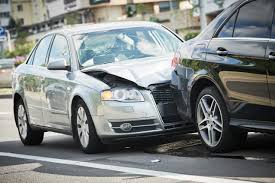Using Traffic and Surveillance Camera Footage to Strengthen Your Car Accident Claim
In today’s world, cameras are everywhere—at intersections, on storefronts, even on doorbells. For car accident victims, these surveillance videos can be a powerful tool in proving who was at fault. Unlike eyewitness accounts that can be vague or conflicting, camera footage can clearly show what really happened.
But here’s the catch: to use this footage, you need to act fast. Most surveillance systems automatically delete video after a few days, and obtaining it often involves navigating complex legal procedures.
At Applebaum Accident & Injury Law, we help injured victims secure crucial video evidence before it disappears. Here’s what you need to know about using camera footage to support your car accident case.
What Kind of Cameras Might Have Captured Your Accident?
Several types of cameras can provide critical evidence in a crash:
-
Traffic cameras at intersections
-
Speed enforcement cameras
-
Business surveillance systems
-
Residential security and doorbell cameras
These systems may have captured the accident itself—or at least the events leading up to it, such as a driver running a red light or speeding.
Why Video Footage Matters
In many accidents, it’s your word against the other driver’s. Witnesses may not have seen everything clearly. Insurance companies often try to minimize or deny claims. But a video doesn’t lie.
Footage can show:
-
A driver speeding or blowing through a red light
-
Sudden lane changes or illegal turns
-
Failure to yield or stop
-
The moment of impact
This kind of proof can be the deciding factor in negotiations or trial.
The Legal Hurdles of Getting Footage
While video can be extremely helpful, it’s not always easy to get. Cameras are usually owned by government agencies, private companies, or individuals—and each has its own rules for access.
For traffic or law enforcement cameras, a formal Freedom of Information Act (FOIA) request may be required. But you’ll need to:
-
Identify the correct agency (city police, state DOT, etc.)
-
Provide precise details—time, date, location
-
Submit the request within days before the footage is overwritten
For private footage (businesses or homeowners), FOIA doesn’t apply. Instead, we send preservation of evidence letters—also called spoliation letters—to ensure the footage is not erased.
How a Lawyer Helps You Secure This Evidence
At Applebaum Accident & Injury Law, we act quickly. We don’t wait weeks—we take immediate steps to locate and preserve video evidence, including:
-
Identifying the right sources of footage
-
Sending time-sensitive spoliation letters
-
Drafting and submitting FOIA requests
-
Subpoenaing parties who refuse to share private footage
Our legal team knows how critical this footage can be to your case—and we fight to get it before it’s gone.
What If Traffic Cameras Didn’t Capture the Whole Story?
Traffic cams are often aimed at license plates, not the broader intersection. They may not show the actual crash, just that a driver ran a red light. That’s why we don’t stop there.
We investigate nearby businesses, apartment buildings, homes, and even doorbells that may have captured the accident from a better angle. Sometimes it takes knocking on doors. Other times, we use subpoenas when cooperation isn’t voluntary.
What You Can Do Right Now to Help Your Case
While we handle the legal heavy lifting, here are a few ways you can help strengthen your claim:
-
Get the crash report from the police
-
Gather your medical records and bills
-
Document lost wages and workdays
-
Keep a recovery journal: record doctor visits, treatments, pain levels, and how your injuries impact daily life
The more documentation you provide, the stronger your case becomes.
Don’t Risk Losing Crucial Evidence—Let Us Help
If you believe a traffic camera, store camera, or home security system may have captured your car accident, don’t delay. That footage could mean the difference between a denied claim and a full financial recovery.
At Applebaum Accident & Injury Law, we know how to track down video evidence and use it to hold negligent drivers accountable. Let us build the strongest case possible while you focus on healing.
Call(855)-Call-Paul today for your consultation.



